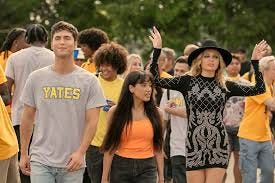Let Young Artists Write Young Stories—It’s That Simple
Case Study: Overcompensating by Benny
One of the many comments I had heard about Netflix’s Mismatched was, “‘No one in college talks like that.” And that is such an apt criticism of the show. I don’t think anyone who has stepped into a college or spoken to overgrown teenagers who are in their 20s would think that this is how we all spoke. For instance, the scene that Netflix used in all their promos, “hello, future-wife,” could possibly be relatable to anyone.
And then Netflix came out with Naadaniya, that also made every person think if Netflix’s team and Akhtar had spoken to the audience that they were trying to write a film for. Did they even speak to their own cast that albiet are of a really specific privilege but they too should have a fair idea of what today’s teenagers and 20 year olds sound like.
There are really few Bollywood films that I could make my case for that understand how the youth speak to each other or how they view their lives. Maybe that is why we would rather watch content creators bring us their own written shorts, sketches, rants and vlogs because even they end up writing and understanding their demographic better. They might not be best but at least they aren’t trying to convince us that this line makes sense: “I feel a lot of things, I'm not an AI robot you know.”
Mainstream platforms like Netflix and Bollywood continue to get Gen Z and young adult portrayal wrong—not because they don’t have access to good actors or budgets, but because they exclude the very people they’re trying to represent from the writing process
But Bollywood is not the only who was severely misunderstanding the young demographic. For a long time, Hollywood had sparse content in the “Coming-of-age” genre and Young Romance and Life films. Mostly because, productions would rather place their investments and bet on seasoned directors and writer rather than the up and coming ones. The directors and writers being asked to write for the younger audience who have grown up learning and creating a vocabulary for themselves with an extremely different perspective on the world is criminal. These directors should continue to do what they do best (Yes, Zoya, please go write another hit like Dil Dhadakne Do or something, you are great at writing about rich families with ambitious kids who kind of follow in their parent’s footsteps.)
Hollywood got the hint a little before us.
With releases like Overcompensating, Bottoms and Not Okay being the brainchidren of writers and directors who are or are close enough to understand the younger generation and mind, they aren’t making the overly online generation sound cringe or childish or performative. Rachel Sennot, Quinn Shephard, Benito Skinner and Emma Seligman are all including the experiences the online generation has lived through and seen in a manner that doesn’t reduce them to stereotypes but makes them stand out.
I would say even Cooper Raif and Bo Burnham have done a good job in writing stories about the “younger” generation.
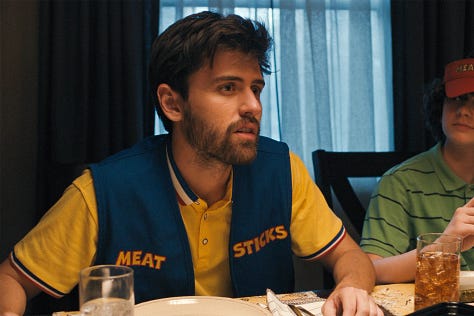
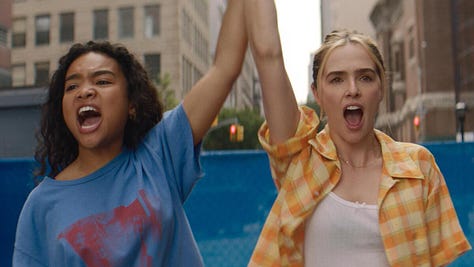
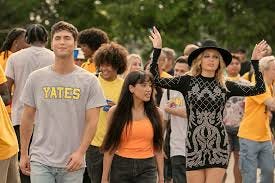
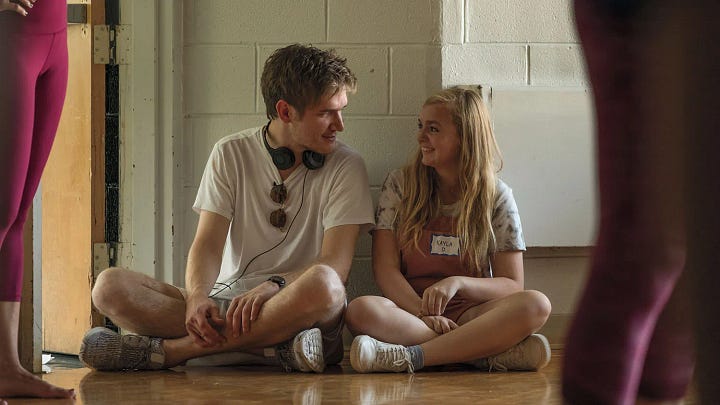
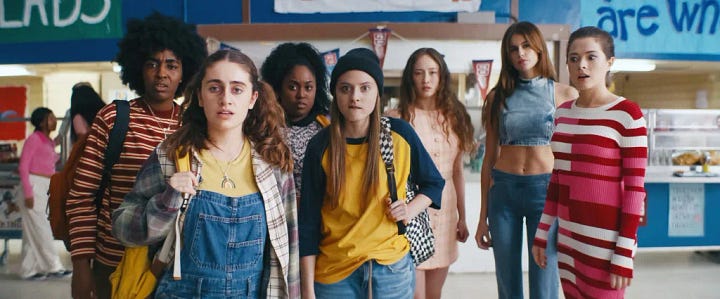
Even India got it right for a while. When the directors got a chance to tell stories about their age like Dil Chahta Hai (Frahan Akhtar was 26) and Wake Up Sid (Ayan Mukherjee was 25) they made classics, so shouldn’t we also have a new wave of directors and writers who are given the budget and opportunities to tell the stories for this generation.
Think about what the youth is watching today. Stand Up, Short Content Reels, Skits and Sketches and whatever else the influencers are churning out. Because even that is more natural, authentic and creative and does a way better job in connecting with the 20 year olds than whatever else Bollywood marks as “young”.
Maybe the way for India to also get more stories that appeal to the demographic won’t be by just casting popular names and giving them side roles, but to let them into the writing rooms and actually hear how they speak. Maybe they need to listen to what the varying perspectives on lives are. How do we interact with films and content, what do we look for in our stories, what do we think is something we should talk about, because lets be real, none of us are AI Robots.

